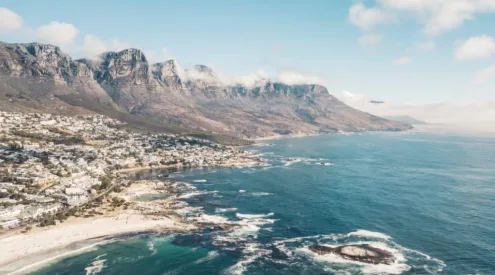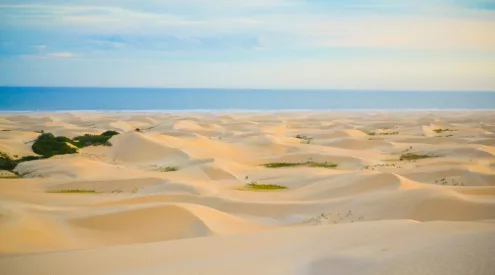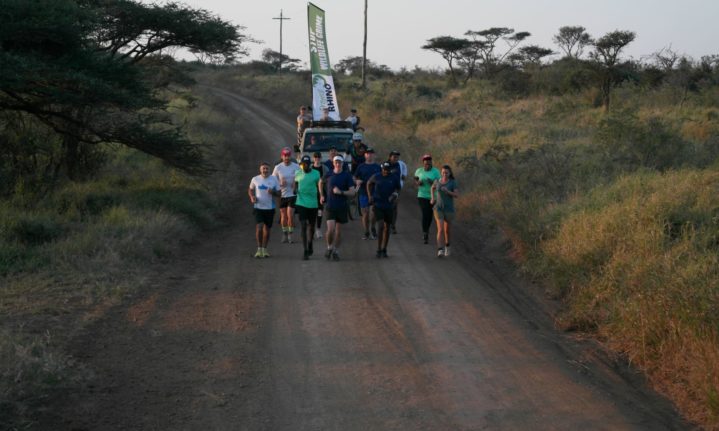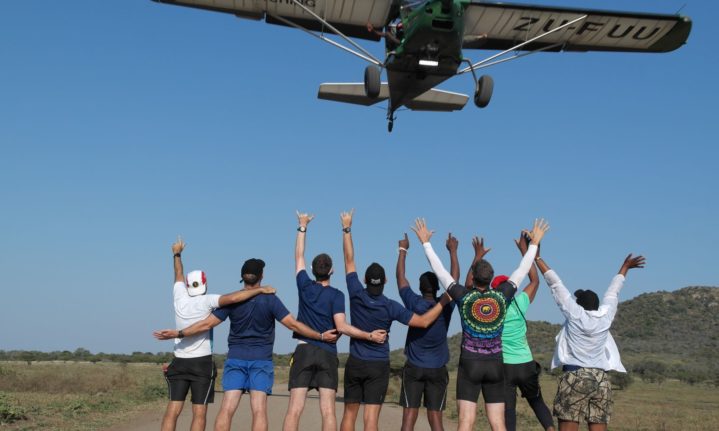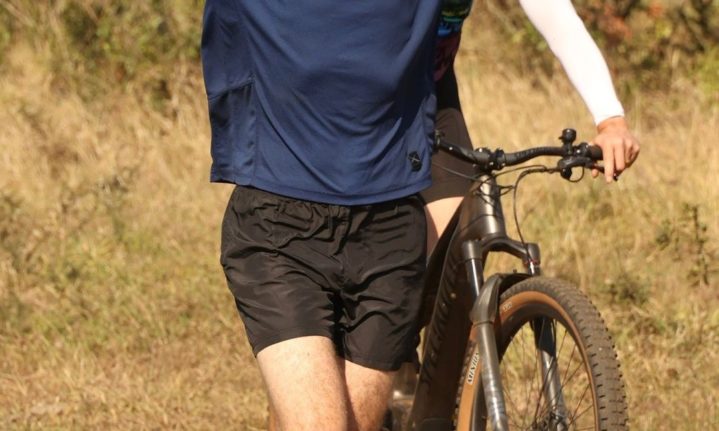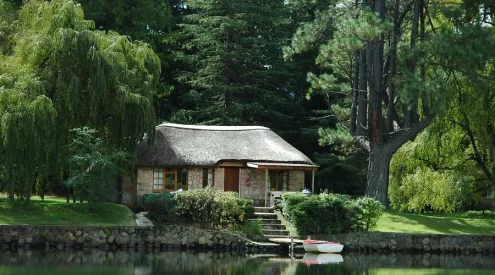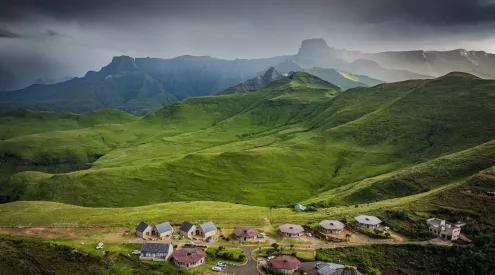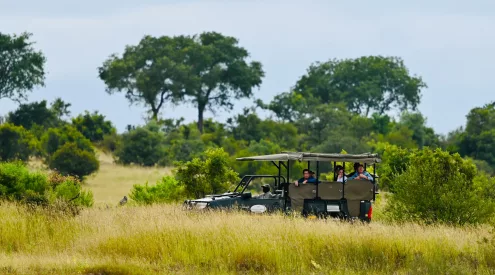A bunch of runners with very sore bodies still managed to keep the smiles on their faces after a gruelling 100 km run through Thanda Safari Game Reserve in KwaZulu-Natal (KZN).
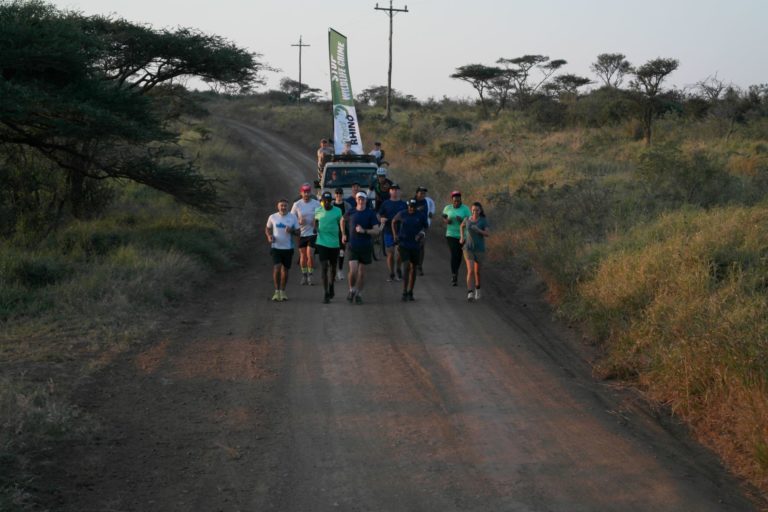
The Runner’s approaching the finish line.
KZN has been hit especially hard, where 75 rhinos were poached in the first 92 days of 2022 in the province. This is what prompted Harry Bailey, a matric learner at Hilton College to launch the fundraising effort – The Run for Rangers.
Bailey’s goal to raise R100 000 by running 100km through Thanda Safari’s huge open spaces in Big 5 territory and to create awareness for the incredible work that the Rangers do, was reached – and surpassed – to everyone’s great delight. A triumphant total of R160 000 was raised in three weeks.

Bailey, admitting that he is ‘not a natural runner,’ explained that he had wanted to challenge himself to run 100km in two days, and most important to get the public to sponsor this incredibly good cause.
‘Even though the run was hard, really hard – I am so glad I did this. I even managed to squeeze in a visit to a local community crèche that Thanda Sponsors, while on the run. The funds raised exceeded all our expectations.’
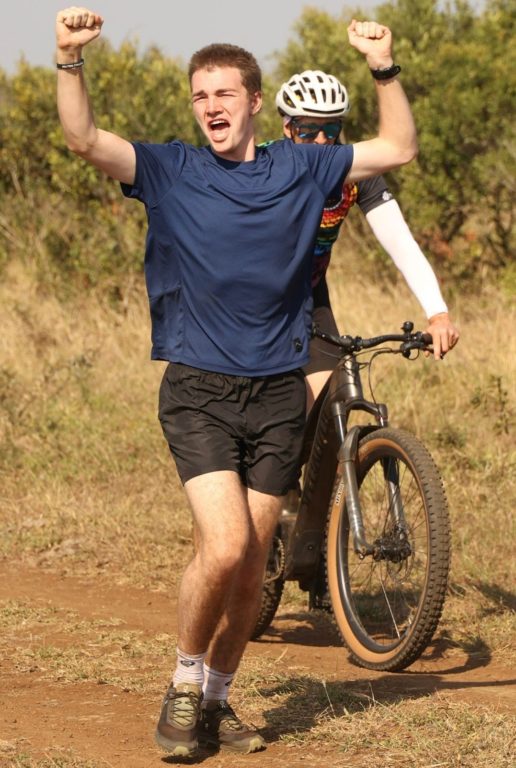
Harry Bailey. Picture: Christian Sperka
Funds raised will go towards training to assist the K9 unit, rangers and their families, aerial support, community education and engagement, as well as bringing awareness to the predicament that rangers face with regards to the effects of poaching.
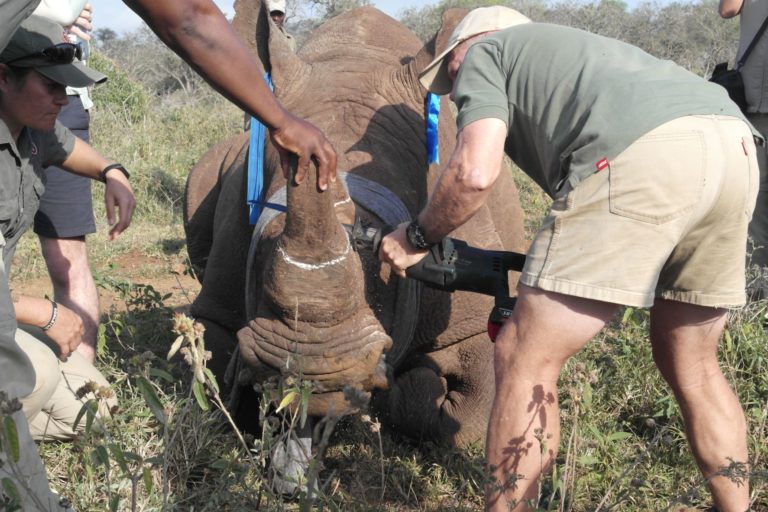
Harry ran with armed Thanda Anti-Poaching Rangers, Vusi Gumede, Siyabonga Zulu, Sinenhlanhla Fakude and Thanda housekeeper Ntombi Nutli, and on day 2, field guide, Peace Nyawo. Joining them, was Kevin Hendrikse Keegan Daniel, former Sharks Captain and Springbok rugby player, Chris Kingsley, co-founder of Sport for Lives, Rory Steyn, former bodyguard of Nelson Mandela and Harry’s father, Donavan Bailey.
A fitting conclusion to this moving weekend was a rhino dehorning, attesting to the work of Project Rhino. There are still a few days remaining for those who want to donate towards this great cause by visiting Sport for Lives here.
ALSO READ
Rhinos born in Rwanda’s Akagera after largest ever rhino translocation

